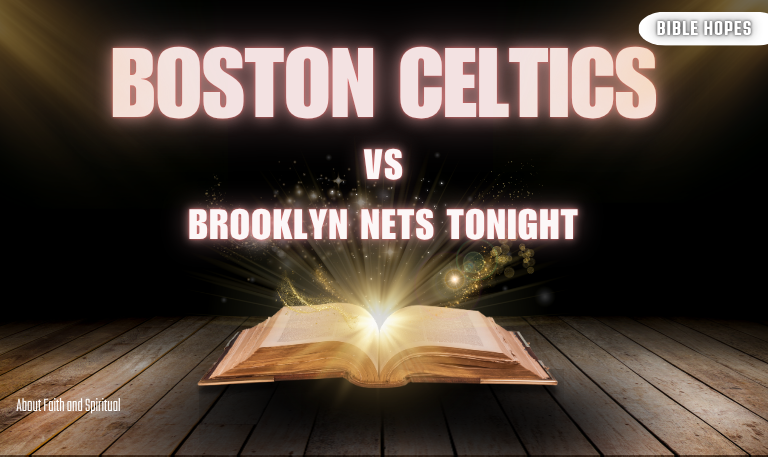In Christian theology, few debates have sparked as much discussion and division as Cessationism vs Continuationism. At its core, this debate asks: Do the miraculous spiritual gifts—like prophecy, speaking in tongues, and healing—still operate in the church today, or did they cease after the apostolic era?
Understanding this debate is essential not only for theologians but for every believer who seeks clarity on the role of the Holy Spirit, the Bible, and spiritual gifts in modern Christianity. This article offers a comprehensive exploration of both positions, their biblical foundations, historical development, and practical implications for churches and individual believers.
What is Cessationism?
Definition and Overview
Cessationism is the belief that certain miraculous spiritual gifts—especially the sign gifts such as tongues, prophecy, and healing—ceased to operate after the early church period, typically concluding with the death of the last apostle or the completion of the New Testament canon.
Historical Origins of Cessationism
This view gained prominence during the Protestant Reformation when reformers like John Calvin and Martin Luther emphasized Scripture’s sufficiency and downplayed ongoing supernatural manifestations. It was later systematized by theologians such as B.B. Warfield and became widely held among conservative evangelical denominations.
Read Also: Episcopal Vs Catholic
Key Biblical Passages Supporting Cessationism
1 Corinthians 13:8-10 — “Love never fails… but when the perfect comes, the partial will pass away.” Cessationists interpret “the perfect” as the completed Bible, ending the need for miraculous gifts.
Hebrews 2:3-4 — Miracles and signs authenticated the apostles’ message, but with the apostles gone, so did the sign gifts.
Ephesians 2:20 — The church is “built on the foundation of the apostles and prophets,” implying the foundational role has ended.
Prominent Cessationist Denominations
Reformed Churches (e.g., Presbyterian, certain Baptist groups)
Some conservative evangelical and fundamentalist churches
What is Continuationism?
Definition and Overview
Continuationism holds that all spiritual gifts described in the New Testament—including prophecy, tongues, and healing—continue to be active and accessible to believers today, empowered by the Holy Spirit.
Historical Background of Continuationism
Continuationism is rooted in the early church’s experience and has been embraced especially by Pentecostal and Charismatic movements since the 20th century. It emphasizes ongoing revelation, miracles, and experiential encounters with the Holy Spirit.
Key Biblical Passages Supporting Continuationism
Acts 2:17-18 — “Your sons and daughters will prophesy… your young men will see visions…”
1 Corinthians 14 — Paul gives detailed instructions for orderly use of gifts in the church, with no indication they were temporary.
Mark 16:17-18 — Signs such as speaking in tongues and healing accompany believers.
Prominent Continuationist Denominations
Pentecostal churches (e.g., Assemblies of God)
Charismatic movements across various denominations
Many non-denominational churches
Biblical Foundations: A Closer Look
Spiritual Gifts in 1 Corinthians 12–14
These chapters provide the most detailed New Testament teaching on spiritual gifts. Paul identifies gifts such as wisdom, knowledge, faith, healing, miracles, prophecy, tongues, and interpretation.
| Spiritual Gifts Mentioned | Key Points |
|---|---|
| Wisdom & Knowledge | Revealed understanding |
| Faith | Extraordinary trust in God |
| Healing & Miracles | Divine interventions |
| Prophecy | Speaking God’s message |
| Tongues & Interpretation | Spiritual languages |
Paul emphasizes love as the highest virtue that must govern all gifts, underscoring the relational and edifying purpose of gifts.
Does the Bible Suggest Spiritual Gifts Ceased?
Cessationist Interpretation: The phrase “when the perfect comes” in 1 Corinthians 13 refers to the completion of Scripture, thus ending the need for gifts.
Continuationist Interpretation: The “perfect” refers to Christ’s return, meaning gifts remain until the end of the age.
Theological Arguments for Cessationism
Completion of the Canon: Miraculous gifts authenticated the apostles’ message; with the Bible complete, gifts are unnecessary.
Foundational Purpose: Gifts served to establish the church’s foundation; once laid, signs ceased.
Historical Decline: Early church writings suggest gifts diminished quickly after apostles.
Guarding Against Excess: Emphasizes caution to avoid deception and disorder in the church.
Theological Arguments for Continuationism
The Ongoing Work of the Spirit: The Holy Spirit is active in the church today, distributing gifts as needed.
Biblical Promises of Signs: Jesus and Paul promise signs will accompany believers until the end.
Historical and Modern Testimony: Continuationists point to documented miracles, healings, and prophetic words throughout church history and today.
Purpose for Edification: Gifts are meant for building the church and personal encouragement continually.
Historical Development and Church Perspectives
Early Church Views
Church fathers like Irenaeus and Clement of Alexandria documented ongoing miraculous gifts in the early centuries.
Medieval Christianity
Miracles were less emphasized but still reported, often linked to saints and monasticism.
Protestant Reformation
Reformers leaned towards cessationism, focusing on Scripture’s authority and downplaying miracles.
Pentecostal and Charismatic Movements
From the early 1900s, Pentecostalism revived emphasis on tongues and healing, leading to the modern continuationist wave.
Contemporary Implications and Church Practice
Worship Styles and Practices
Cessationist Churches: Often have traditional worship, focused on preaching and sacraments.
Continuationist Churches: Emphasize lively worship, spiritual gifts, prophetic ministry, and healing services.
Role of Miracles and Prophecy Today
Continuationist communities actively pursue and practice these gifts, whereas cessationist groups remain cautious or skeptical.
Evangelism and Discipleship
Understanding the role of gifts impacts how churches evangelize, disciple, and equip believers.
Read Also: Old Testament Vs New Testament
Key Figures and Influential Writings
| Cessationists | Continuationists |
|---|---|
| B.B. Warfield | Wayne Grudem |
| John MacArthur | John Piper |
| D.A. Carson | Jack Deere |
Recommended reading includes:
The Charismatic Theology of St. Luke by Roger Stronstad
Surprised by the Power of the Spirit by Jack Deere
The Gifts of the Spirit by Sam Storms
Addressing Common Misconceptions
Misconception: Cessationists deny the Holy Spirit’s presence today.
Fact: They affirm the Spirit’s work but deny continuation of sign gifts.Misconception: Continuationism equals uncritical acceptance of all spiritual claims.
Fact: Continuationists emphasize discernment and biblical testing.
Cessationism vs Continuationism FAQs
Q1: What is the main difference between cessationism and continuationism?
A: Cessationism teaches that miraculous gifts ceased after the apostles; continuationism teaches they continue today.
Q2: Do all Christian denominations agree on this?
A: No. Views vary widely across denominations and traditions.
Q3: Are miracles still happening today according to the Bible?
A: Continuationists say yes; cessationists say miracles are rare or ceased.
Q4: Does cessationism deny the work of the Holy Spirit today?
A: No, it affirms the Spirit’s work but not the sign gifts.
Q5: How can one discern genuine spiritual gifts?
A: Through biblical testing, alignment with Scripture, and spiritual maturity.
Conclusion
The Cessationism vs Continuationism debate is complex and deeply rooted in Scripture, history, and theology. Whether you lean toward one side or appreciate aspects of both, understanding this debate enhances your grasp of how God works through His Spirit today. Regardless of position, believers are called to pursue love, humility, and discernment in all spiritual matters.
![Cessationism vs Continuationism | Do Spiritual Gifts [2025] 1 Cessationism-vs-Continuationism-Do-Spiritual-Gifts-[2025]](https://biblehopes.com/wp-content/uploads/2025/06/Cessationism-vs-Continuationism-Do-Spiritual-Gifts-2025.png)


![15 Pink Bible Verses | Discover Meaning, Love [2025 Guide] 5 15-Pink-Bible-Verses-Discover-Meaning,-Love-[2025-Guide]](https://biblehopes.com/wp-content/uploads/2025/05/15-Pink-Bible-Verses-Discover-Meaning-Love-2025-Guide.png)